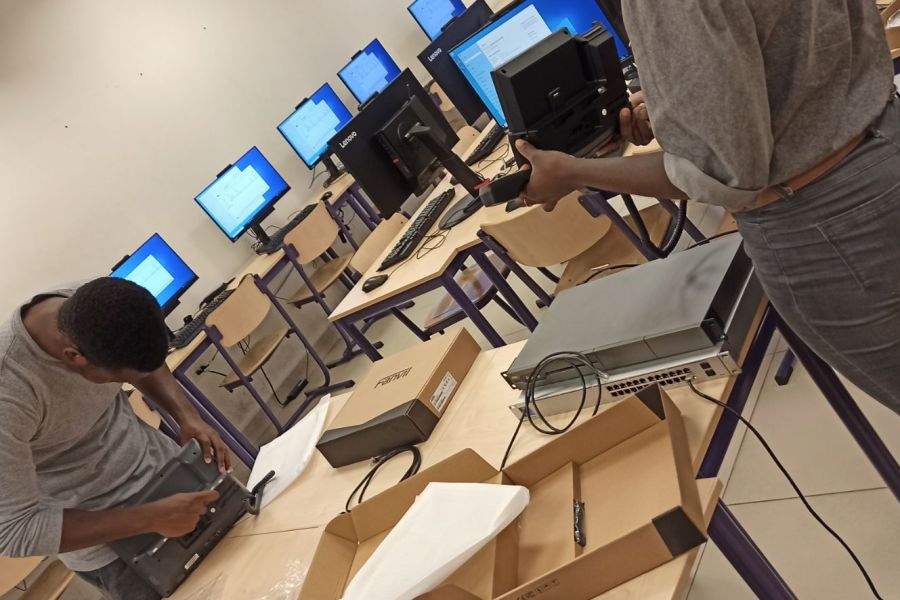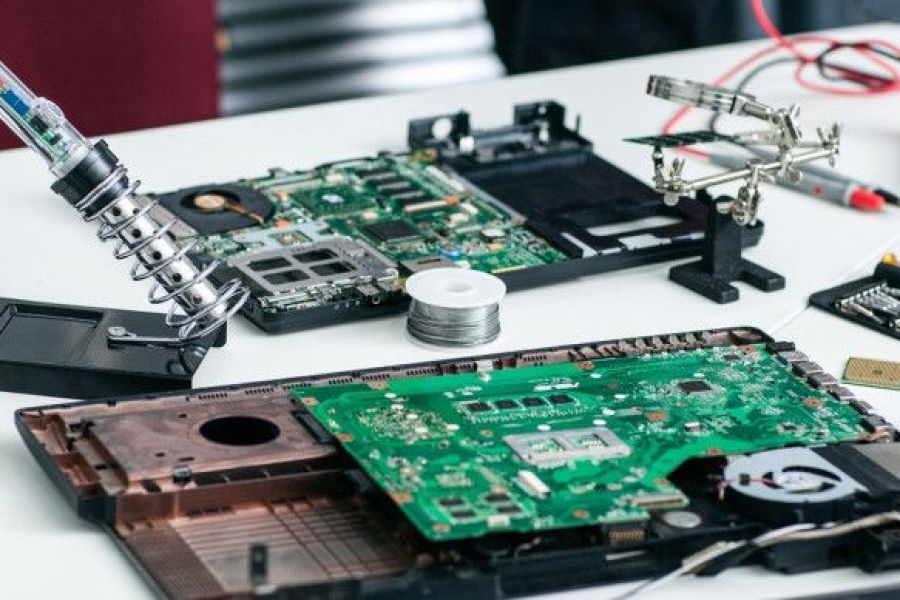ICT
Level 3
The ICT level 3 /4 (Information and Communications Technology) manages computer hardware and software configurations. The ICT Service Assistant's job responsibilities comprise: fitting, assembling, and preparing for use, as well as maintaining computer configurations, installing and managing software, hardware, and data systems. He or she need to stay up to date with the ICT industry evolution, know how to solve problems.
The IT Network manager is responsible for the installation, operation, and maintenance of computer systems and other technologies, such as communication systems. An IT Assistant's duties include configuring hardware and software, setting up peripherals such as printers or routers, repairing equipment, and providing daily support for computer network users.
The ICT Service Assistant works under direct supervision of a manager and according to instruction and (time) planning he or she receives from the manager. The ICT Service Assistant is responsible for his or her own work. This work is regularly checked by the manager. Teamwork is a part of the ICT Service Assistants work, and he or she can consult colleagues and notify a manager when necessary.
The ICT Service Assistant works according to routines, standard procedures, and combinations of (standard) procedures. The tasks vary from basic to complex, depending on the problem, program and computer(s).
Some of the skills you will learn in the ICT Service Assistant program include hardware and software installation, data systems maintenance and management, and effective communication.
- Accuracy
- Resourcefulness
- Flexibility
- Self-reliance
- A helpful attitude
- Affinity with computers
- Result-oriented work attitude
- Oral and written command of English
- An analytical and conceptual intellect
- Ability to function in as a team member
The ICT Service Assistant can function in various segments of the job market. The main tasks are combined with commercial activities in computer retail sales or with technical and/or administrative activities, as well as supporting tasks in regular education and other learning institutes.
Working at a help desk is one of the many places you might find an ICT service assistant. However, he or she can also find work in companies that offer ICT support and computer repair services, in retail stores, at a big company that requires ICT support, or for a hardware or software developer. The ICT service assistant can work as a test analyst, a systems developer, or a network manager, among other jobs.
In addition, the ICT Service Assistant can be engaged in the recycling process of hardware components, in which distinguishing (still) serviceable/usable accessories plays a major role.
Possible career opportunities are:
Computer System Repairs Manager
Hardware and Software
Network Troubleshooting Administrator
This program consist of classes in school and practical training in the workplace. A few days a week you will work at a company as a student employee. The practical training allows you to practice your skills and to learn all about the profession from professionals in real situations. This also means you will already have some work experience when you finish the program.
The IT Network manager is responsible for the installation, operation, and maintenance of computer systems and other technologies, such as communication systems. An IT Assistant's duties include configuring hardware and software, setting up peripherals such as printers or routers, repairing equipment, and providing daily support for computer network users.
Course :
ICT
Level:3
Availability:Day or Evening Programs
Duration:3 years
Responsibility
The ICT Service Assistant works under direct supervision of a manager and according to instruction and (time) planning he or she receives from the manager. The ICT Service Assistant is responsible for his or her own work. This work is regularly checked by the manager. Teamwork is a part of the ICT Service Assistants work, and he or she can consult colleagues and notify a manager when necessary.
Complexity
The ICT Service Assistant works according to routines, standard procedures, and combinations of (standard) procedures. The tasks vary from basic to complex, depending on the problem, program and computer(s).
Skills
Some of the skills you will learn in the ICT Service Assistant program include hardware and software installation, data systems maintenance and management, and effective communication.
- Accuracy
- Resourcefulness
- Flexibility
- Self-reliance
- A helpful attitude
- Affinity with computers
- Result-oriented work attitude
- Oral and written command of English
- An analytical and conceptual intellect
- Ability to function in as a team member
Career
The ICT Service Assistant can function in various segments of the job market. The main tasks are combined with commercial activities in computer retail sales or with technical and/or administrative activities, as well as supporting tasks in regular education and other learning institutes.
Working at a help desk is one of the many places you might find an ICT service assistant. However, he or she can also find work in companies that offer ICT support and computer repair services, in retail stores, at a big company that requires ICT support, or for a hardware or software developer. The ICT service assistant can work as a test analyst, a systems developer, or a network manager, among other jobs.
In addition, the ICT Service Assistant can be engaged in the recycling process of hardware components, in which distinguishing (still) serviceable/usable accessories plays a major role.
Possible career opportunities are:
Computer System Repairs Manager
Hardware and Software
Network Troubleshooting Administrator
Training
This program consist of classes in school and practical training in the workplace. A few days a week you will work at a company as a student employee. The practical training allows you to practice your skills and to learn all about the profession from professionals in real situations. This also means you will already have some work experience when you finish the program.
Admission
Submit your application
This course requires a PKL, TKL, or a SBO level 2 diploma. The student could also have made it to HAVO 3 or equivalent to enter this course.
Level info:
Level 3 Professional.
Transitional options:
NIPA is using the SBO module system in transitioning from one year to the next.
This implies that grades obtained in the previous year will be carried over to the following year.
Students can thus follow the modules from the following year even if they did not successfully complete modules from the previous year, which can be retaken.
In order for a student to obtain an SBO diploma, they would have to successfully complete all partial qualifications.
There is also an opportunity to achieve partial qualification certificates.
In this system, the student is always rewarded, for achieving satisfactory grades.
Most SBO programs allow students to transition to higher levels depending of the structure of the program and if the program is being offered by the institute.
With a level 3 diploma, a graduate would be eligible to enter into a level 4 course.









